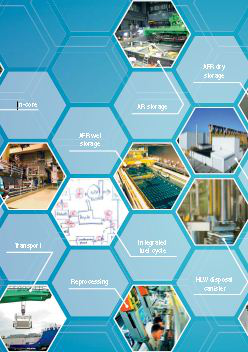Speaker
Mrs
Caroline DREVON
(AREVA)
Description
Almost four years after the Fukushima events, the nuclear industry has shown its capacity to respond to first additional safety requirements and continues working closely with the regulators and involved stakeholders for further improvements. Continued growth is still anticipated and several international organizations have confirmed 2035 scenarios close to or above 600 GWe of installed nuclear capacity. Securing and optimizing the fuel cycle is crucial to ensure the sustainability of such a nuclear program in the medium term. Rethinking fuel cycle schemes is also decisive to prepare long term transitions to next generations of reactors. R&D and Innovation shall remain a cornerstone of this sustainable development.
With the foreseen nuclear development, the used fuel backlog will continue to grow for several decades. Bolstered by a 40 years experience, recycling has been contributing to further increase safety while offering main operational, environmental, global acceptance benefits, among others. However even though recycling capabilities are on track to expand in some countries there will be a growing need, to move forward efficiently, to smartly mix proven and evolving solutions (recycling, on site dry storage, pools, centralized storage, advanced technologies). These shall be combined in an optimized manner taking into account key criteria related to non proliferation, minimization of environmental impact, economics, fleet performance, responsibility towards future generations… The recommendations from Safety Authorities to deepen the question of very long term dry storage have also reactivated the debate about the available options for the short and long terms, including recycling, which is therefore likely to play an increasing role, especially if flexibility is required to ensure a cost-effective fast reactor ramp-up. Such an approach is aimed at meeting needs that may differ, even diverge depending on the concerned stakeholders.
The paper will in particular illustrate how Areva’s “Sustainable Cycle Solutions” may optimize fuel cycle schemes for the short and longer terms and fulfill the stakeholders’ needs. It will also pinpoint the related limits and conditions that have to be met to fulfill the above mentioned criteria.
Country/ int. organization
France - AREVA
Author
Mrs
Caroline DREVON
(AREVA)
Co-author
Mr
jerome brueziere
(AREVA)

